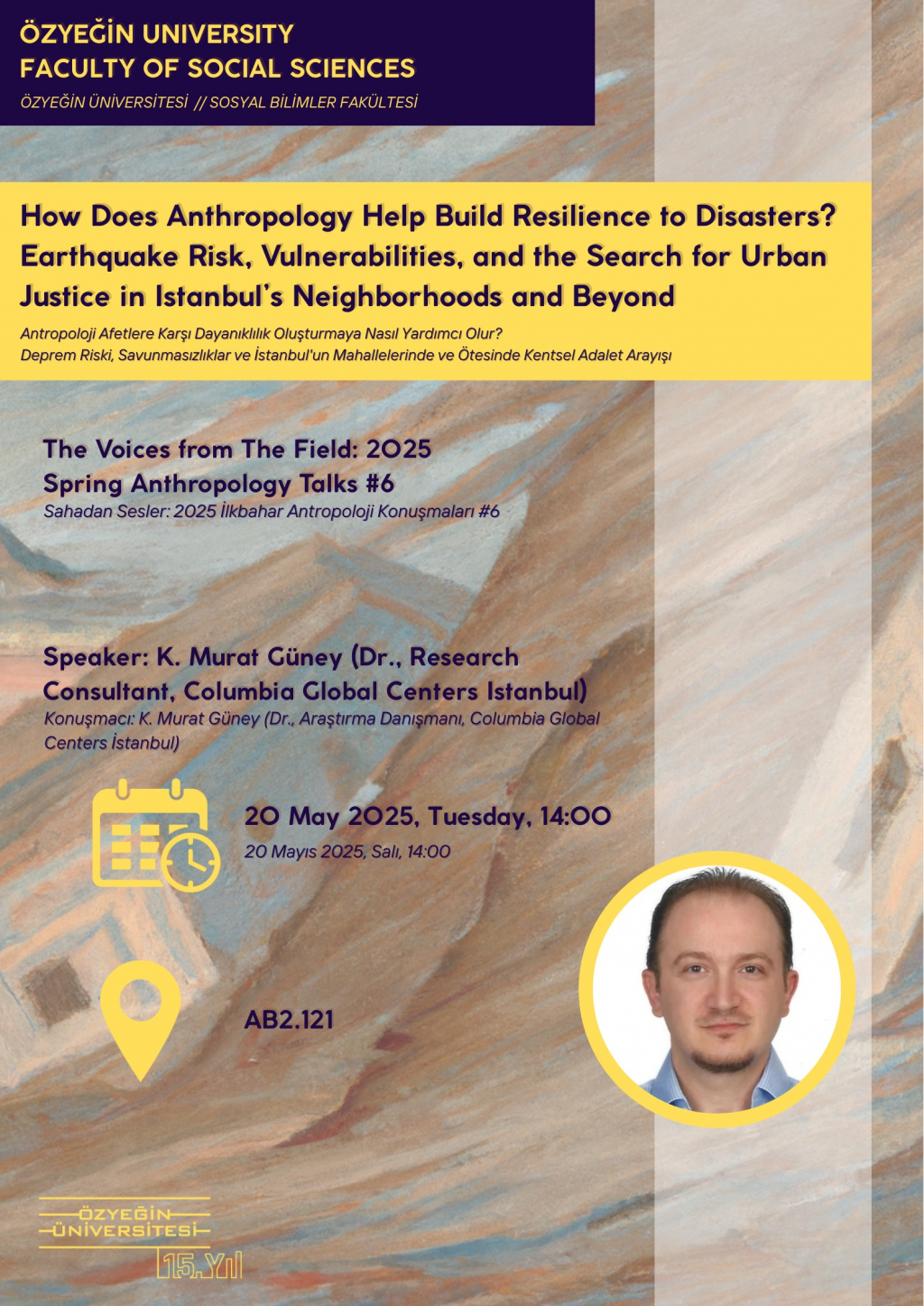Özyeğin University, Çekmeköy Campus Nişantepe District, Orman Street, 34794 Çekmeköy - İSTANBUL
Phone : +90 (216) 564 90 00
Fax : +90 (216) 564 99 99
E-mail: info@ozyegin.edu.tr

Talk# 6: K. Murat Güney (PhD, Research Consultant, Columbia Global Centers Istanbul) : "How Does Anthropology Help Build Resilience to Disasters? Earthquake Risk, Vulnerabilities, and the Search for Urban Justice in Istanbul’s Neighborhoods and Beyond

Talk abstract: What transforms a natural event into a disaster? A critical anthropological approach reveals that disasters are not natural events, but outcomes of deep-rooted social, political, and economic inequalities that heighten vulnerability and risk.
Following the 1999 Izmit earthquake, Istanbul has undergone massive (re)construction under the pretext of disaster preparedness. However, rather than reducing risk, this transformation has leveraged vulnerability as a means of generating wealth through construction, paradoxically making the city more fragile and disaster-prone amid rapid urban growth.
In this talk, I examine how earthquake risk actively shapes the production of urban space and how urban renewal projects often exclude vulnerable populations from decision-making processes. My research, based on ethnographic fieldwork in Moda, Tozkoparan, and Fikirtepe, shows how earthquake risk impacts communities unevenly, depending on land value, socioeconomic status, and residents’ capacity to organize for their rights to the city.
These case studies highlight that urban redevelopment driven merely by profit—while disregarding public demands as well as social and environmental vulnerabilities—not only exacerbates disaster risk but also undermines the possibility of equitable urban regeneration. I argue that meaningful urban resilience demands an anthropological approach, one that centers inclusive, participatory practices and foregrounds the lived experiences and agency of vulnerable populations.
Building on my research on participatory and inclusive resilience-building, the final part of my talk introduces my new project on environmental justice. The international project, “Empowering Communities that Rely on Tourism in the Eastern Mediterranean: Greece’s and Türkiye’s Challenge to Wildfires and Climate Change,” is centered on fieldwork in Çanakkale and the islands of Bozcaada and Gökçeada, and aims to foster sustainable, climate-resilient tourism by strengthening the capacities of vulnerable groups—such as seasonal workers, migrants, and women—whose livelihoods are increasingly at risk due to wildfires and climate change.
